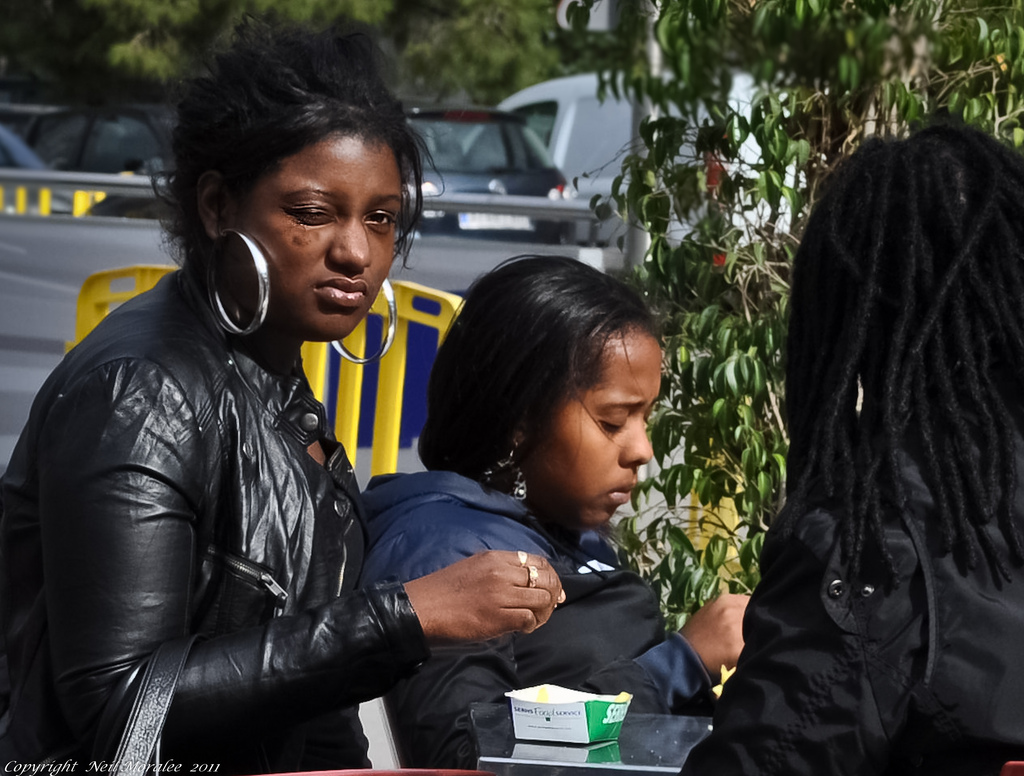“Nigerian feminists are facing a revolution”
February 12Domestic violence has endured as long as the world existed, writes Oluwapelumi Francis Salako, 20, a Correspondent from Oyo State in Nigeria, even though worldwide it is considered in a negative light.
In spite of the condemnations and hostility against domestic violence, it has found and enshrined its own way of staying rigid and ever recurring as a prevalent member of the world constituency. Familial assault and random homophobic attacks are recurring motifs.
Many years back, several individuals, organisations, governmental parastatals and citizen revolutions rose to tackle the menace of domestic violence and the peril it poses to victims and the larger society. Foremost amongst the worldwide accepted and recognised movements that fought against unwarranted violence is feminism —the advocacy for striking equal balances and rights between both sexes of the human entity. Feminism was first defined by the French socialist and philosopher, Charles Fourier, in 1837.
The presence and widespread acceptance of the internet has aided the exchange of ideas, enlightenment and worldwide broadcast of inventions, theories and opinions. And feminism is not an exception to the benefits of the world wide web. It has served as the conduit through which the front is conveyed to every corner of the world. And by now, there is no part of the world devoid of the extension and the discussion of the movement that spurred on in France many decades ago.
In contemporary times, feminism has taken on innumerable forms and posits. It is a truism that feminism has undergone many stages of redefinition and adulteration in the process of exportation to tribes, countries and climes, in some cases leaving us a botched skeletal frame of the initial blueprint. Unfortunately, the erosion of the policies and motives of feminism has led some subscribers of the school of thought to act against the foundational aims of the movement.
In Nigeria, feminists are composed of men and women. The male subscriber mainly has been drawn from highly lettered and sympathetic folks. In essence, it is perceived as a western invention of women to fight against men —married and single alike— and as an umbrella through which a collective women’s effort will relegate men to the background of the social hierarchy.
More than how feminism has been projected under the Nigerian microscopic view, it has been operated and displayed in essence as truly conforming to the light through which it is perceived. An outstanding example is the recent outburst on the Nigerian wing of Facebook. A certain poster of enormous influence with many followers has justified the actions of a wife who stabbed her husband on grounds of infidelity and extramarital engagements.
The Facebook poster declared the murder as a revolution, and expressly directed women to follow such stead. Reportedly, more women joined in recently by maiming, stabbing and ending the lives of their partners in their sleep. I have not been able to connect the dots of vengeful reconciliation of marital affairs in a relationship solemnised by the court of law, which makes provision for separation or divorce in the case of unfaithfulness or unwillingness to keep the union.
This particular body of people are best described as trouble makers and dispensers of chaos. This highly shaded exertion of force might transform many family homes into theatres of war, which will eventually boil down onto the larger society. The government and the headquarters of the feminist movement cannot afford to simply look on now.
Photo credit: Neil. Moralee I walked into a door. via photopin (license)
…………………………………………………………………………………………………………………
About me: I am a student of history and international studies. I derive pleasure in writing on issues bordering on social, cultural and political happenings around the world. I also write short stories and poetry. I am the pioneer of a street photography project, ‘wakaabout’ dedicated to the daily struggle of the common people. I am the author of – speaking Shadows, a poetry and photography chapbook. My aspiration is to become my country’s political head.
…………………………………………………………………………………………………………………
Opinions expressed in this article are those of the author and do not necessarily represent the views of the Commonwealth Youth Programme. Articles are published in a spirit of dialogue, respect and understanding. If you disagree, why not submit a response?
To learn more about becoming a Commonwealth Correspondent please visit: http://www.yourcommonwealth.org/submit-articles/
…………………………………………………………………………………………………………………





